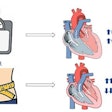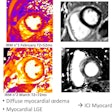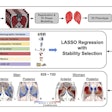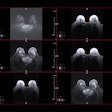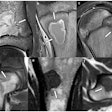Dear MRI Insider,
Artifacts can occur due to MRI hardware, scanning parameters, or patient factors, and they can have a serious impact on image quality and can be confused with pathology, researchers from Adelaide in Australia have reported.
In a special feature posted today, the group has shared its experiences with artifacts in spine MRI, including five clinical figures.
Today's second article is about how a playkit can help to reduce the anxiety of children and parents prior to an MRI scan. A team from Sheffield, U.K., has elaborated on its simple and relatively low-cost solution to this longstanding problem.
In other news, an urgent MRI exam on a cancer patient was not performed until 20 weeks after the request was made, the New Zealand Health and Disability Commissioner has stated. The scan showed metastatic cancer in the man's spine. Check out the full story.
Meanwhile, French researchers have outlined which imaging modalities are best when it comes to characterizing adnexal lesions. MRI is typically the go-to modality when an adnexal lesion is considered "complex" or "indeterminate" on ultrasound, they say.
A widespread lack of capacity continues to restrict MRI's use in breast imaging and screening. Dutch researchers have addressed this issue by seeking to optimize patient throughput and workflow in breast MRI. They presented their findings at the European Society of Breast Imaging annual meeting in Valencia, Spain.
In this newsletter, we've highlighted a few of the many reports posted in the MRI Community over the past month or so. Please scroll through the full list below, and feel free to contact me if you have ideas for future coverage.














